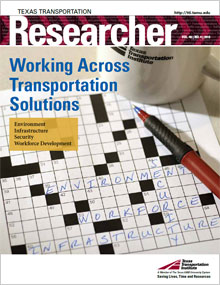
Last year the David R. Goode National Transportation Policy Conference published Well Within Reach: American’s New Transportation Agenda. The bipartisan conference, cochaired by former Secretaries of Transportation Norman Mineta and Samuel Skinner, suggested that without a fundamental change in direction, our nation’s transportation system simply will not meet our future needs.
The Goode report recommends 10 principles to guide policy makers, ranging from how to most efficiently fund the system to how to streamline its administration. Some hard decisions will have to be made. For example, according to the report, the gas tax alone cannot sustain the level of investment we need as a nation. Failure to properly maintain and innovate our transportation system will hinder our productivity, hamper the economic opportunity afforded to rural areas, and compound congestion issues in our larger cities. One way or another, users of our transportation system will pay for it — whether through a user fee (as proposed by the report) applied to improved maintenance and innovative solutions to transportation challenges or through “inefficiencies in time, money and safety,” the results of an underfunded network.
In 1966, when he created the U.S. Department of Transportation, President Lyndon Johnson pointed out that while the U.S. transportation system was the envy of the world at that time, it was already becoming inadequate to the nation’s needs. Congestion, urban planning issues, lack of proper maintenance — these he cited as growing problems even then.
These issues are still with us, and they’re getting worse. The Goode report says that we need to address these issues honestly, realistically and as a nation. We need policies that facilitate solutions, policies founded on reliable research data.
 In this issue of the Texas Transportation Researcher, we profile how the Texas Transportation Institute (TTI) is providing innovative solutions to transportation challenges in four areas: infrastructure, security, workforce development and the environment. If you boil down the Goode report, it’s really about adopting a common-sense, balanced approach to meeting our country’s transportation needs.
In this issue of the Texas Transportation Researcher, we profile how the Texas Transportation Institute (TTI) is providing innovative solutions to transportation challenges in four areas: infrastructure, security, workforce development and the environment. If you boil down the Goode report, it’s really about adopting a common-sense, balanced approach to meeting our country’s transportation needs.
TTI keeps that philosophy in mind when conducting research. Since 9/11, securing our transportation infrastructure has become a national priority, but other factors like construction costs, maintaining traffic flow and privacy issues must also be taken into account. We need to improve maintenance to our infrastructure, but at what cost to the environment? And while the research agenda we’re given is often reactive in nature — intended to solve problems reported by current users of the system — we must remember that training tomorrow’s experts is at least as important as meeting today’s challenges.
At TTI, we’re dedicated to the idea of finding reasonable solutions to complicated problems. It just makes good sense.
